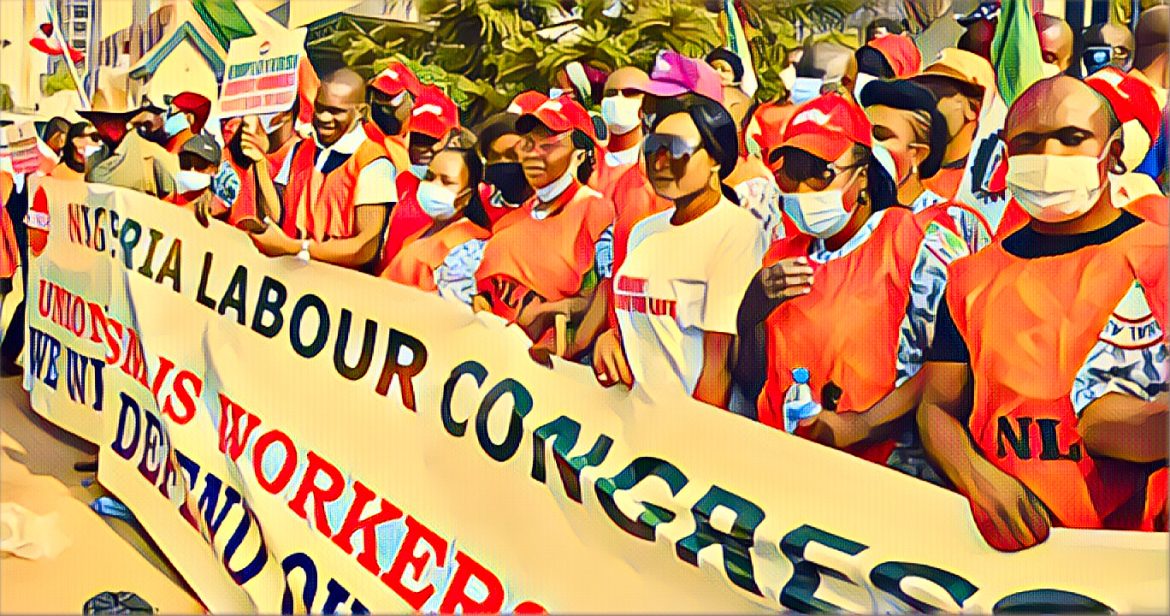The Nigerian Labour Congress (NLC) has voiced its concerns following a report by the International Trade Union Confederation (ITUC). The ITUC Global Rights Index 2024 ranked Nigeria among the worst countries for workers’ rights, placing it alongside nations like Costa Rica, Finland, and Mexico.
The ITUC, representing 191 million workers across 169 countries, also highlighted systemic failures in protecting workers’ rights in Israel, Kyrgyzstan, Madagascar, Qatar, Russia, Saudi Arabia, Sudan, and Switzerland.
Reacting to the report, the NLC said Nigeria’s ranking is unsurprising given the Federal Government’s handling of labor issues, including the National Minimum Wage negotiations. “This ranking, though alarming, reflects the ongoing struggles faced by Nigerian workers,” the NLC stated. “It underscores the urgent need for comprehensive reforms to protect and uphold workers’ rights in Nigeria.”
The NLC criticized the Nigerian government for failing to regulate and protect workplace relations effectively. “Instances of non-compliance with labor laws, infidelity in honoring negotiated agreements, and delayed implementation of minimum wage adjustments highlight systemic failures,” the NLC added. The repression of labor unions and the use of violence and intimidation against striking workers further exacerbate the situation.
The ITUC report coincides with a stalemate in minimum wage negotiations. The Federal Government has offered N62,000, while the NLC and Trade Union Congress (TUC) demand N252,000, after initially proposing N615,000. The Organised Private Sector has countered with a proposal of N52,000. The negotiation committee’s report is currently before President Bola Tinubu, who is expected to resolve the deadlock.
The ITUC Global Rights Index reviews workers’ rights in 151 countries, ranking them against 97 indicators derived from ILO Conventions. The Index rates countries on a scale from 1 to 5+ based on respect for workers’ rights, recording violations annually.
According to the report, the ten worst countries for workers include Bangladesh, Belarus, Ecuador, Egypt, Eswatini, Guatemala, Myanmar, the Philippines, Tunisia, and Turkey. The report noted that 22 trade unionists were killed in six countries, and conditions in 12 countries are so dire that they are rated 5+ due to the breakdown of the rule of law.
Luc Triangle, ITUC General Secretary, emphasized the decline in workers’ rights worldwide. “Workers are the heart of democracy, and their right to be heard is crucial to democratic systems. When their rights are violated, democracy itself is attacked,” Triangle said.
The NLC further acknowledged that employers in both public and private sectors contribute significantly to the abuse of workers’ rights. Unfair dismissals, non-payment of wages, and exploitation of temporary workers are rampant. Many employers fail to provide basic benefits like health insurance and pensions, leaving workers vulnerable.
“The lack of adherence to international labor standards not only harms workers but also diminishes overall productivity and economic stability,” the NLC noted. “The continued payment of starvation wages to Nigerian workers is a great abuse and deeply violates their right to a decent income.”
The NLC believes that the ITUC report should serve as a wake-up call for immediate reforms. “There is an urgent need to revise and enforce labor laws to ensure they meet international standards,” the NLC stated. This includes stringent penalties for violations and mechanisms to protect whistleblowers who report abuses.
Agencies responsible for workplace rights protection must be adequately funded and staffed. The right to unionize and bargain collectively must be protected and encouraged, as unions play a vital role in advocating for workers’ rights. Compliance with minimum wage laws and the provision of essential benefits like health insurance and pensions are critical for workers’ well-being.
The NLC reiterated that the ITUC ranking, while alarming, is an understatement of the harsh realities faced by Nigerian workers. “It is a call to action for the Nigerian government and employers to address these critical issues urgently,” the NLC emphasized.
By implementing the recommended measures, Nigeria can create a more just and equitable work environment, conducive to decent work and increased productivity, ultimately benefiting the entire nation. The NLC remains committed to working collaboratively with all stakeholders to ensure that workers’ rights are respected and upheld.
Source: The Guardian


